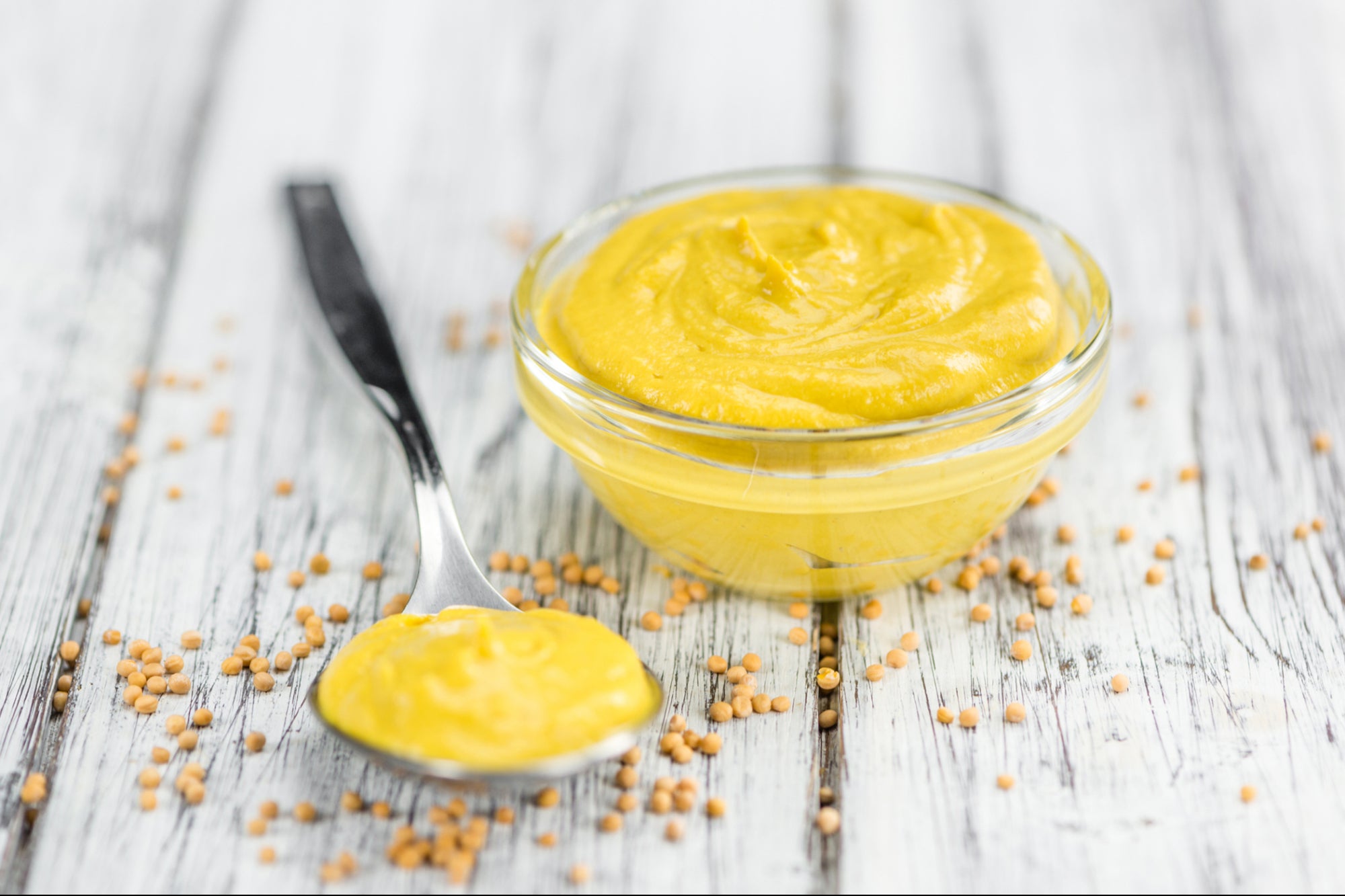Don't Forget the Mustard: Small, Eco-Friendly, Health-Conscious Companies are Conquering CondimentsIt's not just meat that's going veggie. Spreads, dressings, and toppings are getting a plant-based, health- and environment-conscious makeover.
Opinions expressed by Entrepreneur contributors are their own.

The grill is no longer the domain of the meat eater. With so many brands today manufacturing their own spin on vegan burgers and hot dogs, it's possible to have a totally meat-free barbecue.
But there's one product category that's easy to forget, despite its importance to any decent summer cookout: condiments and toppings. But what's a pasta or potato salad without mayo mixed in, or a fresh garden salad without something delicious to top it? The numbers back up the importance of the condiment, dressing, and sauce market: currently estimated around $129.5 billion globally, the sector ispredicted to expandto $158.6 billion by 2025.
Over the past couple of years, we've already seen a shift in the condiments industry in favor of plant-based consumers. Vegan mayo options, once offered by just one or two health food-centric brands, now proliferate the "regular" mayo sections in grocery stores, with even mainstream brands offering their own version. And while regular old ketchup and mustard are generally vegan by default, there's plenty of room for the category to expand in the direction of plant-based, non-GMO, organic, and other environmental and dietary concerns.
Of course, the original Vegenaise byFollow Your Heartis still going strong, and offers organic, soy-free, reduced fat, and other varieties to suit different dietary needs and interests. They even make gourmet-inspired varieties, like pesto mayo and chipotle mayo, as well as tartar sauce for your vegan "crab" cakes. And in the last few years alone, rockstar brandEat JUSTcould be credited with bringing vegan mayonnaise to the masses. They, too, offer a chipotle mayo, for when you want to elevate your burger even further.
Related:Why the Next Technological Revolution in Alternative Meat Is Chicken
Vegan is looking creamier
The indulgence of creamy dressings has been, until recently, out of reach for those who avoid dairy. But thanks to the emergence of new brands, plant-based eaters have more choices now than basic oil and vinegar.Plant Junkiemakes a whole line of vegan ranch-style dressings that are also nut, soy, and gluten-free, making them accessible to not only vegans but those with common allergies. And the flavors range from original ranch to turmeric and pepper ranch, making both classic and foodie meals a possibility. Plant Junkie also makes a line of mayo-like spreads made from plant oils like avocado, offering a natural, non-GMO alternative to the standard vegan mayos you'll find at the store today.
Another dressing innovator isImagine Vegan Cafe, a Memphis restaurant that's found success selling their house-made dressings online and in limited retail stores nationwide. They make just two products, a vegan ranch and a vegan "honey" mustard, focusing on what's arguably the biggest gap for vegans in the dressing aisle. Their dressings boast non-GMO and low sodium labels, and the ingredients are primarily things you'd find in a regular home kitchen – sure to put choosy consumers at ease.
Of course, some of our traditional toppings and dressings are already made with minimal, all-plant-based ingredients, like many ofSilver Spring's horseradish and mustard products. Topping a TofuPup with some spicy horseradish is a classic and totally vegan-friendly way to add a spicy kick to your grilled lunch. And of course, some new brands are finding ways to innovate with traditional plant-based toppings and sides.Cleveland Kitchenworks with local farmers and composts their waste, adding a sustainable and pro-community aspect to their core business: sauerkraut and dressings. They make classic and creative varieties, like curry kraut and whiskey dill, and even their creamy dressings (like Caesar and roasted garlic) are vegan-friendly. And if you're interested in branching out with your kraut even more,Atlantic Sea Farmssells sea-beet kraut, made from sustainably grown kelp with beets and carrots. Also of note is their Sea-Chi, a kimchi made from kelp and cabbage.
Related:The Protein Bar Game Is Going Vegan
Diversity on the condiment shelf
Not all the emphasis is on the basic American staples, however.Ben to Tableis a subscription box service that delivers pantry items, and has fully plant-based subscription options. Sauces and condiments are a big component of their boxes – which come from small producers around the world – as their focus is showcasing international cuisines. Past offerings have included Aji Amarillo from Peru, Calabrian chili oil, and Spanish Romesco.
Even humble ketchup is growing past its traditional, corn syrup-sweetened iteration. Sky Valley Foods makes a line ofOrganicvilleketchup and mustards, which are all vegan and, as the name would suggest, made from organic ingredients. So even when consumers are craving the classic tastes they grew up with, brands like Organicville offer an option that suits their ethical and health concerns without sacrificing familiar flavor. And – perhaps unsurprisingly if you've read this far – Organicville also has a full line of dressings to top your green or macaroni salads (or, you know, whatever you want), including dairy-free ranch and thousand island. Another brand reinventing the old favorites isPrimal Kitchen,这使得各种有机调味品公司luding vegan mayos. But particularly noteworthy are their ketchups, which are not only free of high fructose corn syrup, but entirely unsweetened.
虽然看起来似乎大番茄酱的condiment market locked down, these companies are only a few examples to the contrary. Recent reports suggest that the condiment, dressing, and sauce market is actually veryfragmented, made up of lots of smaller players rather than dominated by a few big ones. As consumers continue to turn their interests toward products that are plant-based and allergy-friendly, and also have transparent supply chains and natural ingredients, it seems inevitable that more and more small, innovative brands will continue to break in and disrupt the cookout. The world of what we squeeze and spread on top of our burgers, sandwiches, hot dogs, and salads is only bound to get bigger.
Related:How the Humble Chickpea Stormed Snack and Dessert Markets











